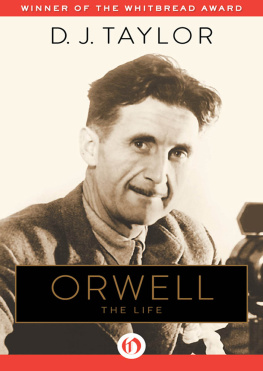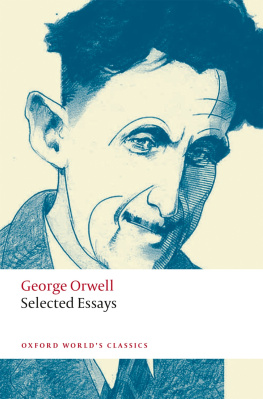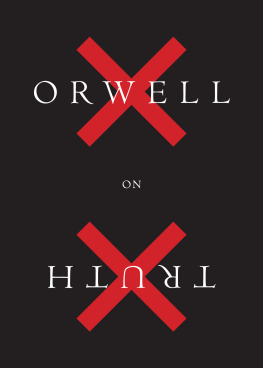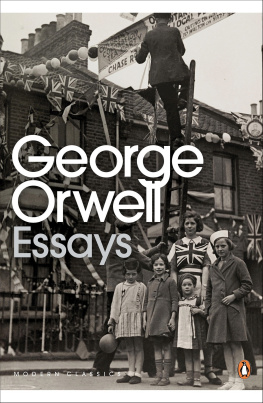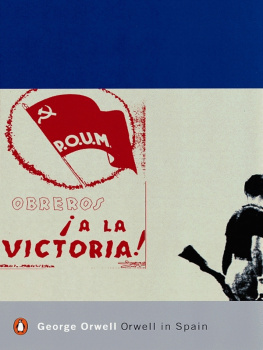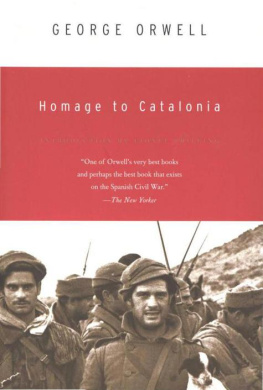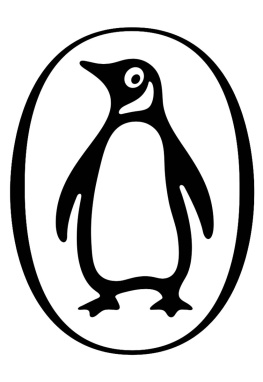Orwell
The Life
D. J. Taylor

Richard Paul Hore (19282002)
Requiescat
Contents
List of Illustrations
The author and publishers would like to thank the following for kind permission to reproduce illustrations: The Orwell Archive, University College, London (1, 2, 6, 9, 12, 13, 22, 26, 35); BBC Photo Library (33); Susannah Collings and Elizabeth Doria (19, 20, 21); Pauline McGregor Currien (10, 11); Estate of Vernon Richards (40, 41); Mrs Esme Goldsmith (16, 17); the late Mrs Celia Goodman (34); Mrs Dora Hammond (18); Powell Family (28, 36), Peter Vansittart (31); Rachel Hore (14); Mrs Deirdre Levi (6, 7); the late Mr George Summers (20); Mrs Kathleen Symons (30).
How much do we need to know about a writer, personally? The answer is that it doesnt matter. Nothing or everything is equally satisfactory. Who cares in the end? As Northrop Frye has said, the only evidence we have of Shakespeares existence, apart from the poems and plays, is the portrait of a man who was clearly an idiot. Biography is there for the curious; and curiosity gives out where boredom begins. Martin Amis, The War Against Clich
Obviously, no full explanation of a man is ever possible. Richard Rees, George Orwell: Fugitive from the Camp of Victory
An Oxfordshire Tomb
In a shortish working career of a little over two decades, Orwell produced nearly two million published words. The twenty volumes that Peter Davisons monumental Complete Works needed to accommodate them take up nearly four feet of shelf space. If he lived to be seventy, Orwell once proposed, comparing his professional output with that of the average coal-miner, the chances were that he would leave a shelf-full of books. He died young, the novels and essays that would have occupied his fifties and sixties were never written, and yet posthumously at any rate, with the help of devoted editors and compilers, he achieved his ambition. Again and these comparisons say something about the way in which his mind worked Orwell once calculated that the lifetime output for a prolific writer of boys school stories would, were the pages to be lined end to end, have carpeted the best part of an acre. His own oeuvre spread out sheet by sheet would occupy an area roughly the size of Norwich city centre. The fifty years since his death have brought perhaps two million words more: biographies, critical studies, memoirs by literary colleagues and childhood friends, even a novel (David Cautes Dr Orwell and Mr Blair) in which he plays a starring role. Why add to them?
Thackeray once declared that when he read a book all that remained in his head was a picture of the author. This defies all known precepts of modern literary theory, but the point remains. Orwell has obsessed me for the best part of a quarter of a century. The first adult novel I ever picked off the bookshelf in my parents house was a Penguin paperback of A Clergymans Daughter that some ineluctable instinct had led my mother to buy in the early 1960s. The GCSE O-level English paper essay that I prophetically set out on a year or so later was: Whose biography would you most like to write? Always in my adolescence, Orwell was there, the ghostly figure on the back of the book jacket urging me on. The sense of sheer personality that rises from his work that urgent need to communicate vital things is immensely strong, all the more so if you are a teenager who barely knows that books exist.
He knows all about me, you feel, he wrote this for me which, curiously enough, is what Orwell himself wrote about Henry Miller. Were I ever to meet his shade in the celestial equivalent of the Groucho Club not, you suspect, somewhere Orwell would ever allow himself to be found I should say what Philip Larkin maintained that he said to Cyril Connolly when the two of them were introduced at Audens memorial service: Sir, you formed me. Cheap Penguins in those days, procurable at fifty pence a throw from the University of East Anglia bookshop, the four volumes of Sonia Orwell and Ian Angus Collected Essays, Journalism and Letters were my private cornucopia in the sixth-form years, a vast, sprawling bran tub into which repeated scoops yielded up anything but bran. Dickens, Thackeray, Gissing, Smollett, hosts of minor writers washed up on the early-twentieth-century shore: hardly any of the people who came to occupy my mental lumber room would have taken up residence there had it not been for Orwell.
There was more to it than this, of course. Marking down Orwells collected works as a hugely idiosyncratic version of the Good Book Guide is perhaps the equivalent of regarding Sir Winston Churchill as a moderately effective leader of the Conservative Party. For Orwell is, above all, a moral force, a light glinting in the darkness, a way through the murk. His status as a kind of ethical litmus paper stems not so much from the repeated injunctions to behave decently, and some of the implications of behaving decently for the average western lifestyle, as from the armature that supported them. Broadly speaking he realised and he did so a great deal earlier than most commentators of either Right or Left that the single most important crisis of the twentieth century was the decline in mass religious belief and, its corollary, in personal immortality. God was dead and yet the secular substitutes put in His place, whether totalitarianism or western consumer capitalism, merely travestied human ideals and aspirations. The task facing modern man, as Orwell saw it, was to take control of that immense reservoir of essentially spiritual feeling all that moral sensibility looking for a home and use it to irrigate millions of ordinary and finite lives. The atrocities of Nazi Germany and Stalinist Russia and this point is repeated endlessly in his later writings could only have been designed by the godless because they presuppose a world in which there is no moral reckoning, and where the only power that matters is the ability to control not only your fellow men but the history of which they are a part and the knowledge on which that history rests. The idea that there was a life after death was unsustainable, but the moral baggage that accompanied that belief was indispensable. As it happens, and for reasons it is superfluous to explore here, I dont believe that God is altogether dead, but I do believe in the materials which Orwell used to construct his opposition to that eternally memorable phrase from an essay published in 1940 the smelly little orthodoxies which are now contending for our souls. It is worth pointing out that these orthodoxies still exist sixty years later, if in rather different forms and wearing yet more elaborate disguises, and that it is our duty to resist them with exactly the same vigour with which Orwell resisted Hitler and Stalin.
And so in a curious way I always knew that I would end up writing about Orwell, that the contents of the Oxford history syllabus were as nothing compared to say the essay Oysters and Brown Stout, which first alerted me to the fact that there was a writer called Thackeray, or the essay on Dickens, which leaves you with the feeling that Dickens and for that matter Orwell himself are sitting in the room talking to you as you read. The intensity of this fixation was such that it took me most of my twenties to establish the areas in which Orwell, mysteriously, was fallible, principally those breathtaking generalisations which close, adult inspection reveals to be a little less watertight than they seem. Take the famous statement that Good prose is like a window-pane. One doesnt have to be a literary theorist to know that this is nonsense. Ronald Firbank, Marcel Proust and James Joyce (the last of whom at least Orwell profoundly admired) wrote varieties of good prose and none of their sentences is remotely like a window-pane. Transparency, surely, is not the only virtue? It is the same with some of Orwells no-nonsense prescriptions for linguistic frankness, his hatred, for example, of those double-negative formulations of the His was a not insignificant talent type. Arguably the complexities hinted at when one writer remarks of another that his talent was not insignificant are worth going into, something that redounds to languages credit rather than its capacity for obfuscation. I believe, for example, that Orwells own attitude to the Jews was not unprejudiced. Equally, one suspects that Orwell, in one of his less hard-line moments, would have seen this.

